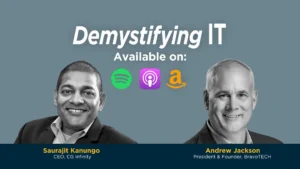Virtual Reality is a Natural Next Step in Remote Learning
In the midst of the fall term during the COVID-19 pandemic, some U.S. universities are continuing the shift to remote learning while other colleges are only allowing 40-60 percent of students on campus. Regardless, it is a certainty that many of the nation’s 19.7 million college and university students will be learning remotely for the remainder of this year—and virtual reality will play an important role.
With the seismic shift to remote learning, educators are turning to virtual reality technology as one way to help engage students and support learning.
Virtual reality is defined as the computer-generated simulation of a three-dimensional image or environment that can be interacted with in a seemingly real or physical way by a person using special electronic equipment such as a headset.
While the technology is typically associated with gaming, it is becoming more and more widely used in the education sector. According to ABI Research, spending on virtual reality in education will reach $640 billion by 2023. The research firm noted that educational leaders are investing heavily in augmented reality (AR) and VR technology because it shifts “the learning process from passive to active, allowing students to interact with content and practice their knowledge in real-time conditions. Learning by experience leads to better understanding, enhances knowledge recall, and strengthens retention. Immersive and interactive experiences stimulate students’ motivation and increase their engagement level, which are fundamental factors for achieving learning goals.”
How virtual reality can help increase retention rates
VR technology does this by helping students learn kinesthetically as well as by hearing and seeing. Students using a VR headset can travel to a virtual science lab where they can do activities they would never be able to do within a normal classroom environment, whether it’s experimenting with volatile substances or dissecting a variety of animals. A study on medical training found that VR learning results in 80 percent retention a full year after training, while only 20 percent of information is retained only one week after traditional training.
According to Edgar Dale’s Cone of Experience theory, people remember 10 percent of the material they read, 20 percent of the information they hear, and 90 percent of what they do and experience. Doing and experiencing are right in VR technology’s wheelhouse. The interactivity of VR allows students to see, hear and do, offering a practical learning experience that significantly increases knowledge and retention.
Build immersive experiences
Increased levels of immersion and student engagement are other major benefits of VR learning. While traditional eLearning happens through a 2D screen, learning via VR allows students to interact with objects, manipulate and build something, or virtually touch objects that they might not have access to in their classroom. With VR technology, a student learning chemistry can experiment with a variety of chemicals without the risk of danger or causing an explosion, biology students can dissect a frog without the challenges of traditional methods, and robotics students can learn to program robots in VR and then turn them loose in a 3D scenario to see how they work.
Professors are able to deploy curriculum across multiple headsets that they manage through a computer, a tablet, or other mobile devices. They can also use the technology to create 3D version of classrooms, allowing students to walk around in the classroom, break out into groups and collaborate more effectively. By adding a layer of VR to this equation, educators can significantly improve engagement and knowledge retention, which ultimately leads to better learning outcomes.
Speak Gen Z’s language
Integrating technology like VR into education is especially critical for teaching a generation of digital natives in Generation Z. Gen Z expects technology to be integrated into how they learn, collaborate and share knowledge. Through VR learning, these students can engage with educational content in a digital environment that more effectively connects them with learning.
The global health crisis has triggered a surge in remote learning and increased reliance on digital technologies that support educational continuity for students. Educators are now leveraging the powers of VR to provide dynamic, immersive learning experiences for students wherever they are.







